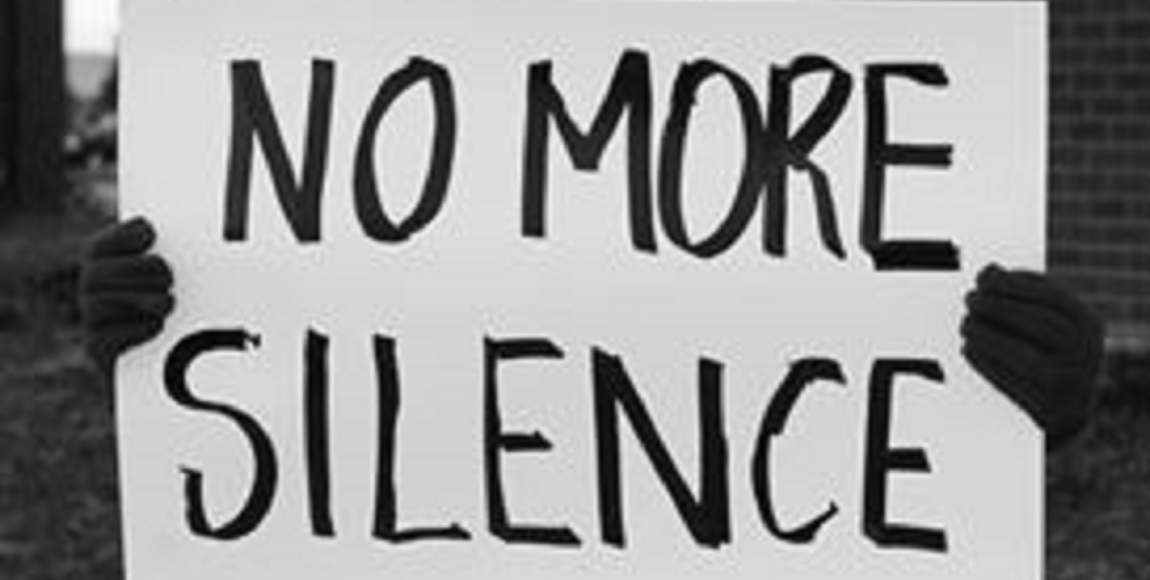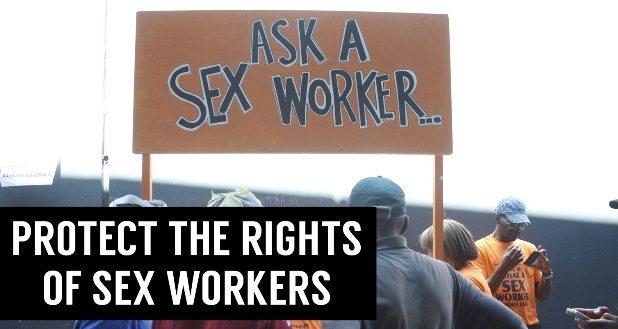Two South African civil society organisations faced sexual harassment allegations against prominent employees in the past year. The civil society #MeToo exposed many of the faultlines in organisations in dealing with sexual harassment. The Daily Vox spoke to Charlene May, an attorney at the Women’s Legal Centre about how organisations should react.
If a complaint within a company is made known about an employee, how should the organisation react?
Ideally organisations should have human resources policies and disciplinary processes that have been adopted to guide complaints mechanisms. This means everyone knows exactly what needs to be done when a complaint is lodged. Policies should set out how complaints can be made. Depending on what the complainant is complaining about, the
policies should be flexible enough to appreciate the trauma or psychological impact that the violation has had on the complainant. This is why we say processes must be victim friendly.
Once a policy is triggered it should clearly set out processes of independent investigation and the setting up of disciplinary processes should the investigation outcome point to a need for a disciplinary hearing. The organisation as the employer has a duty to ensure that the work environment is safe and that no discrimination taking place. The reaction should therefore be one that triggers good governance and accountability.
If an “outsider” makes a complaint about an employee in an organisation, what should the organisation do?
The obligation to act goes back to the employer’s obligation to ensure a safe and discrimination free (equal) work environment for the all the employees, but also for any other person who may come into contact with their employees as part of that employee’s’ official duties and obligations. It would include instances where their employee has used workplace contact or knowledge to engage in unwanted sexual attention or behaviour. So when you say “outsider” the person may not be employed by the organisation but is in contact with this organisation and its employees because there is/was some official work obligation.
Does the law make any provision for harassment which takes place out of the workplace and with someone who is not an employee?
Yes, the code on sexual harassment as well as our case law recognises that a
non-employee or third party that has come into contact with an employee can be sexually harassed. Sexual harassment is not required to have taken place in the workspace. It can and does very frequently happen outside of the workspace but within a work context such as conferences, work-related travel and even over lunchtime at the local coffee shop.
The where is not as important as the who. So it is about whether you are employing the person who has made the unwanted advances of a sexual nature, and the fact that I am in contact with him because of some official work-related purposes. An example would be attending a conference where I am in contact with your employee because you have sent him to attend the same conference. This provides a space in which sexual harassment can take place.
According the law, do organisations have any steps they must take when accusations of sexual harassment and abuse etc are laid against an employee?
Organisations should ideally have a sexual harassment policy or include sexual harassment in their Code of Conduct/HR Manual so that employees are aware of their rights and so that a clear process is set out that the employer will follow when sexual harassment is reported. Where no such policy exists the labour law and the code of good practice on sexual
harassment (as amended) will apply. The employer has an obligation to investigate the complaint. (either by appointing someone internal/independent of the organisation)
Terms of reference should guide the investigation. The investigation does not need to consult the perpetrator but is set up to determine whether enough proof exists for a disciplinary process to be convened. The employer must then convene a disciplinary hearing where the perpetrator is formally charged with sexual harassment, where evidence can be led and where an independent chairperson can adjudicate the facts before them and come to a finding. During this process and the investigation, we advocate for victim friendly processes to ensure that victims are not merely treated like witnesses, but participants with rights that must be protected.
Who should organisations consult when they want to set up an independent investigation?
There are a number of persons who specialise in HR and labour law in South Africa so it is not difficult to find someone to do this. Much will depend on what the process is that the employer envisages.
Why is the victim-centered approach a highly recommended approach?
Survivors of sexual harassment are often treated as only witnesses to the offence of discrimination that has taken place in the workplace. They are often not consulted and the impact or trauma that they may have suffered is disregarded. Processes very often assume that because the person has made the complaint that the person understands what the process involves. The process does not take into account the psychological trauma and the stigma that attaches to women who complain about sexual harassment. By being victim centred the focus shifts to very person who the offence was perpetrated against.
It seeks to provide for her needs and recognises that as a victim she is entitled to certain considerations (her privacy, dignity and health) which should be considered when a process of investigation as well as the prosecution during the disciplinary hearing takes place.
There are some easy questions that employers should consider: What was the nature of the sexual harassment and what has been the psychological impact on the complaint? What support mechanisms does she need (psychosocial support through counselling) Is it necessary to disclose her identity to the perpetrator during the investigation or is it even necessary to inform the perpetrator of the investigation if he can influence others? Should her evidence be given through an intermediary or should it be via CCTV cameras.
There are just some examples of considerations, but victim centred requires that the employer does not just focus on the perpetrators due process rights. We know that when we focus on the perpetrators rights alone women do not receive justice.
Do organisations especially civil society organisations have a legal obligation to keep the media/public informed about the terms of references and outcomes of said investigation?
A level of confidentiality shrouds all disciplinary processes (there are certain due process rights that are afforded to alleged perpetrators) An employer has an obligation to act in an accountable and transparent manner towards the parties concerned in the complaint. There is however nothing in law that says once someone has been found to have perpetrated
sexual harassment that the employer cannot advice others or inform anyone of the process that was undertaken and the finding which was made.
Right now it does not happen and a lot of that has to do with organisational reputation and the image of the organisation. We need to shift the focus here on the duty to protect and ensure that women work in safe spaces. If spaces are safe for women they will be safe for everyone else.









